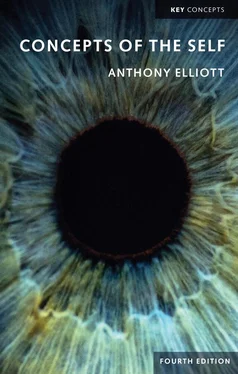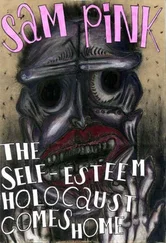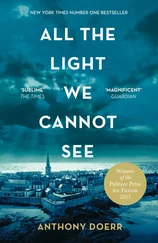One might add, though this is much debated, that the influence of traditional identity categories has dramatically loosened in our age of light mobility, liquid experiences and dispersed commitments. In present-day society, as we will examine in some detail in the Conclusion, private grievances and emotional anxieties connect less and less with the framing of collective identities; in more and more cases, private troubles remain private . Contemporary hopes and dreads, as rehearsed in popular culture, are something to be experienced by each individual alone. Thus, we witness a general shift from identity to the self as a new marker of our times – in terms of both engagement with individual experience and the wider world, but also as concerns new forms of domination and exploitation.
I shall not trace the nuances of these conceptual differences here; the philosophical history of subjectivity has been extensively discussed elsewhere. (See Anthony Elliott, Identity Troubles , London: Routledge, 2016; and the second edition of Anthony Elliott (ed.), Routledge Handbook of Identity Studies , London: Routledge, 2019.) But I do want to say something in this Introduction, however briefly, about versions of the self in current sociology and social theory.
Perhaps nothing appears as more unstable, flexible or pliable than the self in contemporary social theory. But what, exactly, is the self? We all have a sense of self-identity; we all perform ‘selves’ in the rituals of daily life; we all interact with other ‘selves’. Yet how is the self rendered identical to itself? And why does society privilege continuity at the level of the self? One influential strand of thinking – powerful in the West – holds that ‘selfhood is sameness’; there is, according to this viewpoint, a continuity to identity which stretches over time and possibly for all time. Strictly speaking, such philosophy goes back as far as Descartes: ‘I think, therefore I am’. It is here that the essence of the classical idea of consciousness of self as a sure foundation for knowledge is to be found. Confidence in some minimal degree of self-continuity – ‘I am the same self as I was yesterday’ – has been, of course, an essential precondition for all successful living. But only the very few, either because of extraordinary privilege or lack of interest in the surrounding world, could fail ever to question their own security of self. Few could avoid the interpersonal situations that arose – day-in and day-out – wherein the uncertainty of social life was disturbed. To convert the whole fabric of social relations into the engine of self-constitution is, however, a tricky business – as the nineteenth-century psychologist William James most powerfully underscored. For if the self depends for its security on its surrounding social relations, then this seems to deny to identity the certitude many thought existed. As James noted, if the individual has as many selves as there are persons who recognize him or her, then how can that self function ‘the same’ as it did yesterday? It certainly makes our selfhood appear less fixed, or more psychologically flexible, than some dominant Western worldviews seem to have assumed. From this angle, the word ‘self’ means both fixed and pliable. Hence much of the study of the self has passed through these overlapping societal strands of continuity and discontinuity.
In the forms most familiar to our own age, however, the flourishing of concepts of the self is really a product of various global transformations that unfolded from about the early 1960s through to the postmodern 1980s and 1990s. For by the 1960s – when the security and serenity of the post-Second World War economic boom that had prevailed throughout North America and across parts of the world drew to a close, replaced by the era of the Vietnam War, the emergent decolonizing and civil rights movements as well as feminist politics and the sexual revolution – identity had broken with images of sameness, continuity, regularity and repetition. Selfhood was now also coming to mean disaffection, rebellion, discontinuity and difference. Revolution was spreading throughout social life, with student rebellions on campuses across the United States and a dramatic student and worker uprising in France that came close to toppling the de Gaulle government. There were anxieties over race too, in Europe and the American South, in Africa, the Latin Americas and Asia, and a politics of cultural revolution took hold in everything from feminism to Black Power. Selfhood in the sense of excluded histories, displaced narratives, marginalized lives and oppressed identities was fundamental to the attempts of people – women, gays, blacks and subalterns of all kinds – to question the status quo and change the direction of society. This was, in short, the era of ‘identity crisis’ (as Erik Erikson described it), in which the illusion of traditional European individualism was shattered, the military and economic might of America deeply questioned, and the formerly repressed energies of new social movement activists and critics now burst into full cultural expression. In all of this – the shift from social conformity to cultural revolution – we find traces of the intellectual thought of many key theorists of the self who are examined throughout this book.
This is not to say, however, that the cultural revolts of the 1960s arose as an upshot of certain radical ideas then circulating throughout universities. Those involved in various branches of the emergent identity politics of the 1960s and 1970s, from feminism to decolonization movements, might never have done more than glance at Herbert Marcuse’s photograph on the cover of Time magazine (if indeed they did that), or might well have thought that psychoanalysis was nothing more than a variant of other psychological therapies. Radical politics, of whatever ideological kind, comes about when people are led into a new self-confrontation with their own lives. The social theories of the self that flourished during the 1960s and escalated throughout the 1970s, only to falter and mutate into a postmodern dismantling of the self in the 1980s and 1990s, were just such a challenge to the prevailing social order. Jacques Lacan’s Freudian decentring of the self, Herbert Marcuse’s suggestive twinning of sociality and the unconscious, Michel Foucault’s brilliant interrogations of technologies of lived experience, Judith Butler’s feminist redrafting of the intricate connections between gender and sexuality: all these theoretical accounts of the self, as we shall examine in this book, have promoted a suspicion of identity norms, given values, established hierarchies and traditional social practices.
In terms of political transformations and cultural shifts, whether we are considering the heady days of cultural revolution from the 1960s, postmodern subversions of identity during the 1980s and 1990s, or the neoliberal privatization of the self in the 2000s and 2010s, there are various sociological consequences that have followed from these deconstructions and reconstructions of the self in social theory. What gradually took place from the late 1960s onwards, when identity politics defined itself increasingly as a mass political movement, partly as a result of novel theoretical departures and innovations and partly as a consequence of new forms of political action, was a radical shift in our whole cultural vocabulary for understanding the inner world of the self, individual experience and personal identity. That is to say, changing conceptions of the self at the level of the academy and the public sphere inevitably intruded into the realms of daily life and culture. Some have argued, for example, that the women’s movement in its contemporary forms would not have had the same impact without a body of sophisticated feminist theory that arose out of the political upheavals and cultural turmoil of the 1960s and 1970s – a body of thought that, in turn, was indebted to changing conceptions of the individual subject and personal identity in the social sciences and humanities. Certainly, the heavily politicized culture of the 1960s and early 1970s, in which a new stress on personal renewal, self-transformation, lifestyle and identity politics emerged, penetrated deeply into the tissues of cultural practice and everyday life. Politics, as a result, revolved more and more around the personal; the personal, having been previously cast off to the realm of the ‘private’, in other words, was now to be reinserted into the political. This was obviously true of feminism, and especially so in the works of various feminist theorists we consider later in this book, such as Simone de Beauvoir, Nancy Chodorow, Julia Kristeva and Judith Butler. But it was also true of other forms of identity politics, from the civil rights movement to queer theory. Not all were convinced, however, by such attempts to deepen and enrich politics through an engagement with the personal. Some critics argued, for example, that the whole concept of the self had become overinflated – so much so that issues of human agency and radical politics were, in turn, cut loose from social and historical forces altogether. This is not a view I share, for reasons that will become apparent throughout this book. At any rate, to emphasize the active, creative character of the self is not to imply that identity is culturally or politically unconditioned. On the contrary, the turn to the self in social theory has powerfully underscored that racialized, hybridized, sexualized and gendered productions of identity are intimately interwoven with complex forces of economic disadvantage, social marginalization and political exclusion.
Читать дальше












